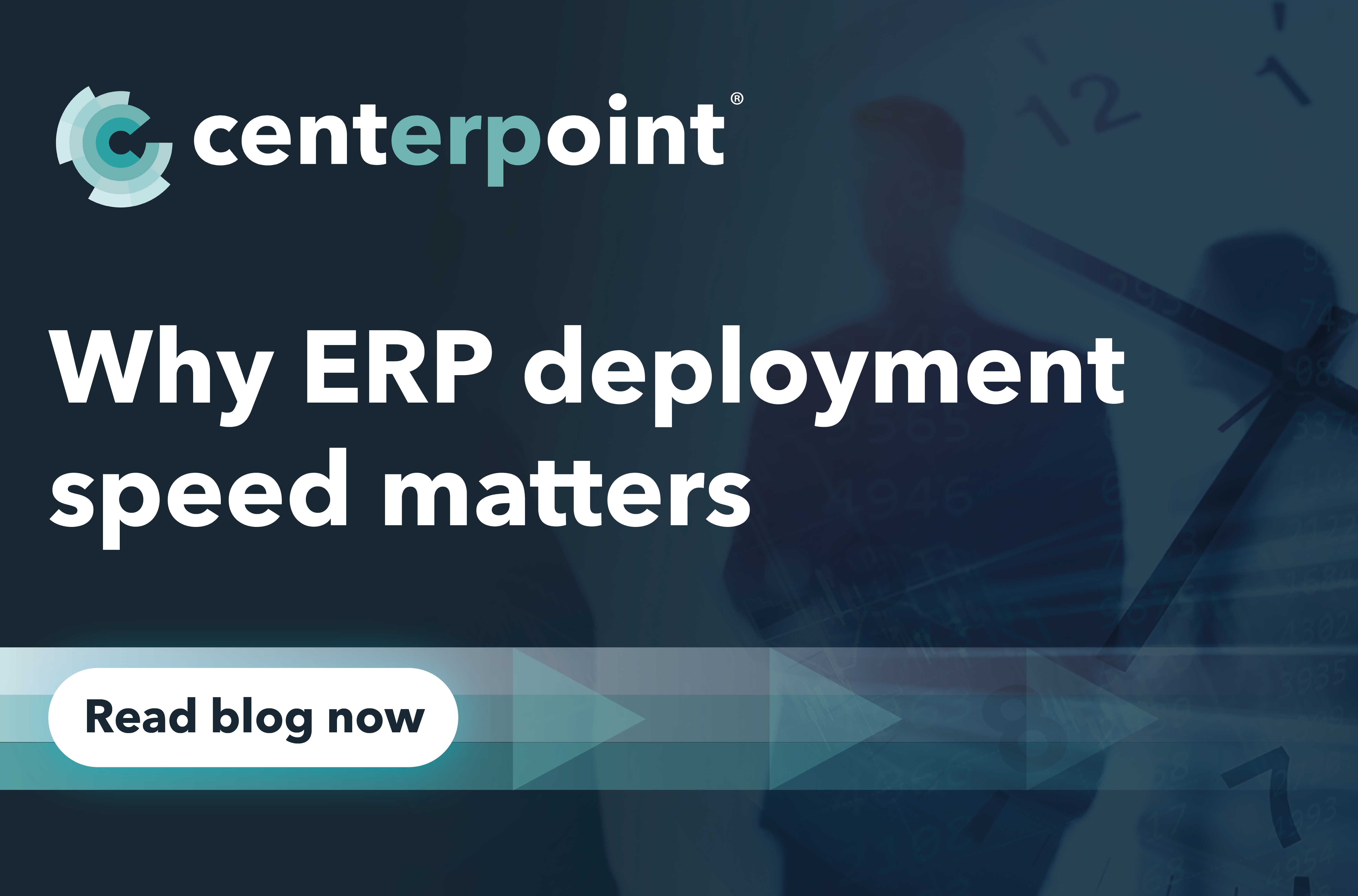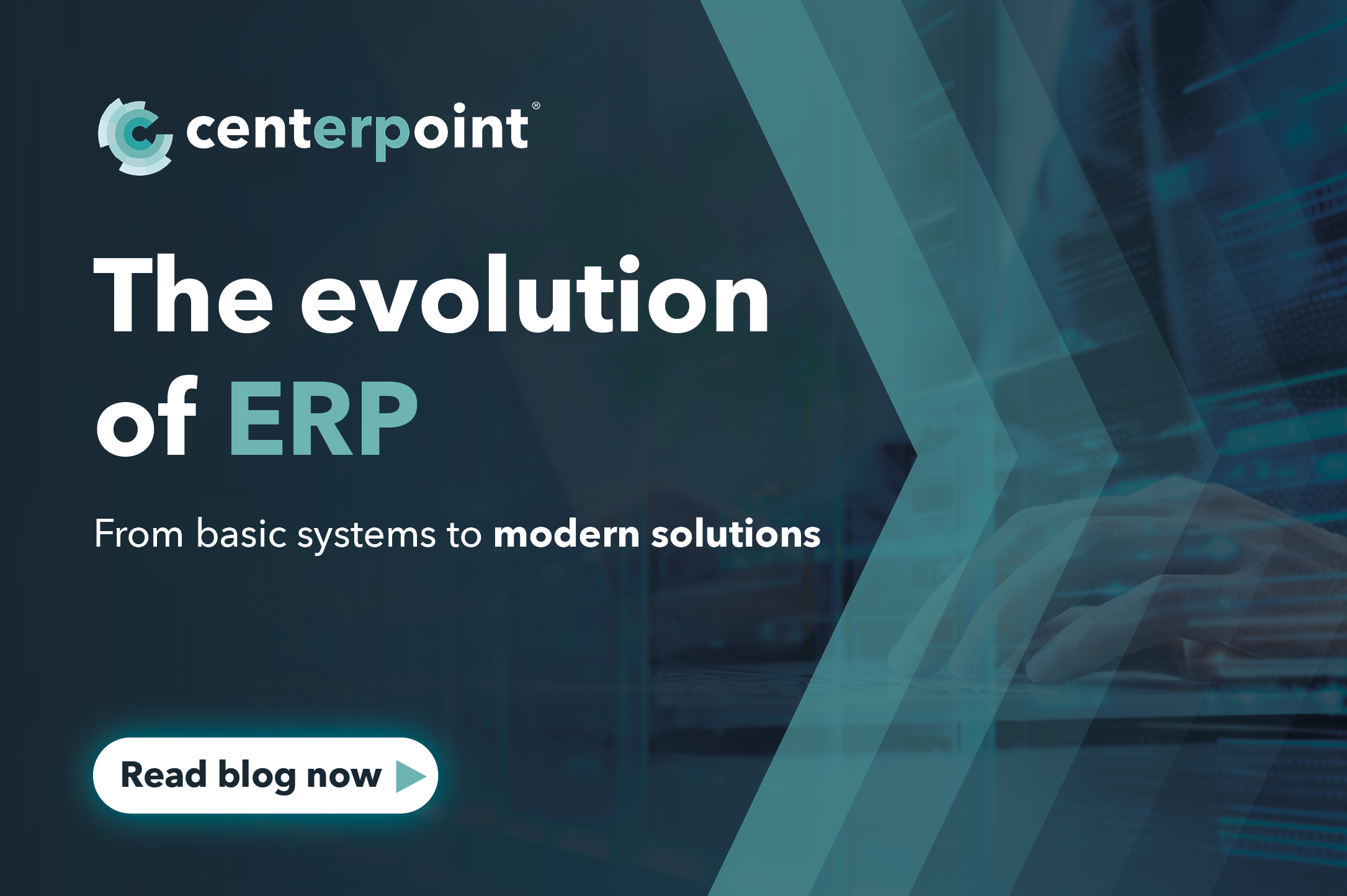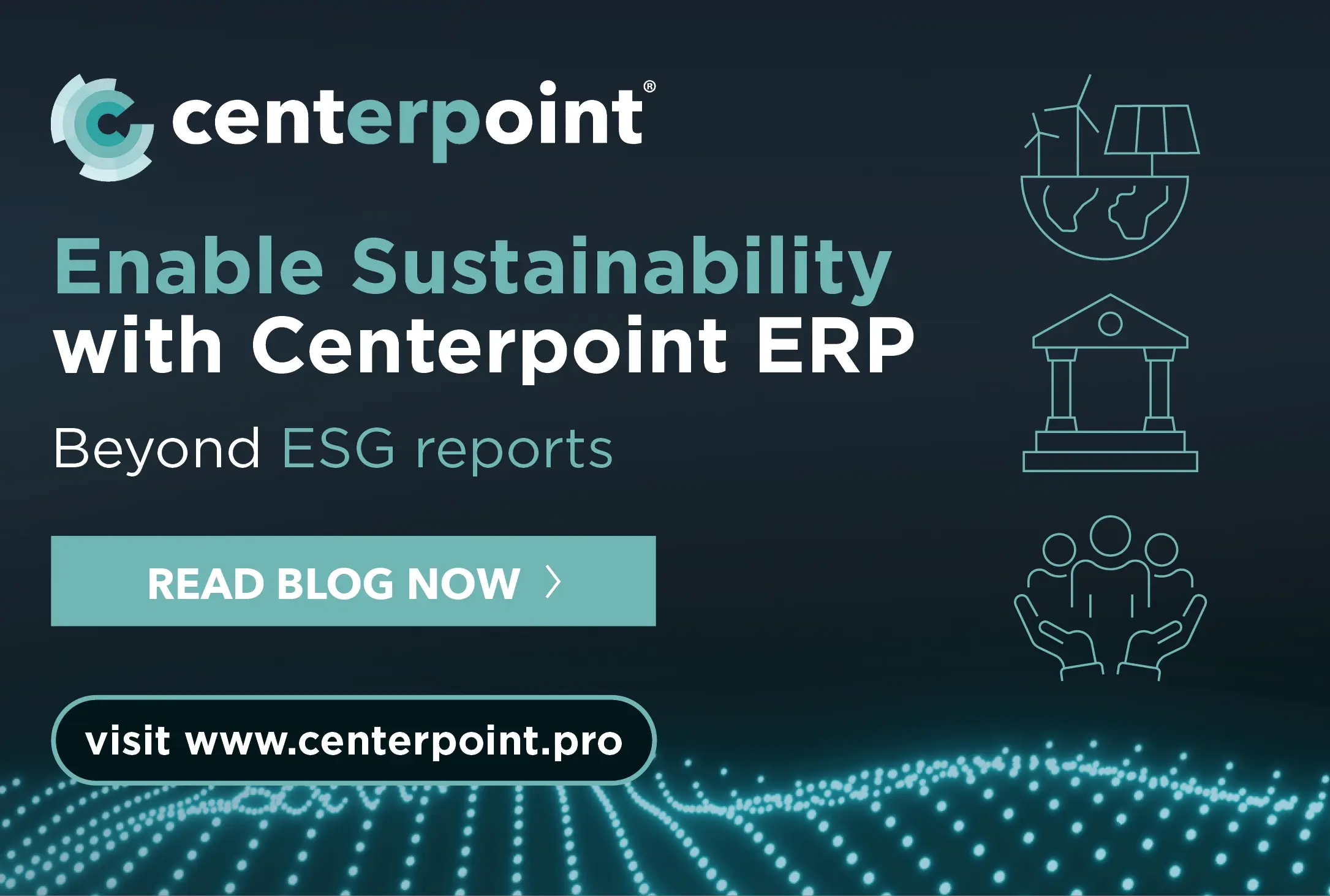“Time is money”, this phrase is widely known and used all over the world. Every country, organisation, and individual values time, it is something that we all know doesn’t stop, nor waits for anyone or anything. So, in an era where time is ever more important, the speed of ERP deployment is rather vital, wouldn’t you say?
Currently, the average speed of ERP deployment sits at 6-18 months (depending on company size), which would understandably, turn companies away from wanting to implement such a solution. However, Centerpoint ERP deploys much quicker, only requiring a few days.
What does an ERP deployment process look like?
Every organisation has different steps in their ERP implementation plan, but the key structure often remains the same, with similar main stages. The below is a general ERP deployment lifecycle.
Step 1. Discovery and planning
• Discussion of the organisation’s needs, issues the ERP system needs to solve
Step 2. Design
• Analyse existing workflows
• Data migration to the new system plan
Step 3. Development
• Configure software to business requirements
• Begin importing data, and create training materials
Step 4. Testing
• Test the systems functions
• Address any problems that arise
Step 5. Deployment
• Goes live, full deployment in progress
Step 6. Support
• Continue to have system upgrades
• Ensures that users have the support they need
The costs of delays
Delays in ERP deployment can lead to increased data errors and compliance risks, the more time spent on the transition the more likely it is to create chaos. Staff morale can decrease, due to the fatigue of the change and prolonged rollouts. The financial burdens of ongoing operations with outdated systems also adds to the costs of a slower ERP implementation process. Lastly, there is potential for it to cause damage to customer trust, weaken brand reputation and create loss on revenue opportunities.
Why deployment speed matters?
• Reduced risks of operational error
• Quicker return on investment (ROI)
• Ability to focus on core business processes, rather than the transition of ERP systems
• Business disruptions minimised
• Matching the speed to the need
How Centerpoint reframes ERP speed
Centerpoint ERP comes with out-of-the-box modules which are configurable, with no expensive add-ons or extensive and complex customisations that slow down new system adaptation. It is ready to be deployed with automated data transfers to reduce any human errors and save you from time-consuming data entry.
Centerpoint also provides masterclass training to accelerate the implementation and learning process of a new ERP system. If all of this hasn’t convinced you that this solution is speedier than the rest, we also have an average deployment time of a few weeks.
So, to summarise:
• Pre-built, with out-of-the-box modules
• Configurable, not over-customised
• Automated data transfers
• Masterclass training that accelerates adoption
• Average deployment takes only a few days, not months or years
Book a discovery call today, and see how quickly you could be up and running with Centerpoint ERP.

.png)


.png)





